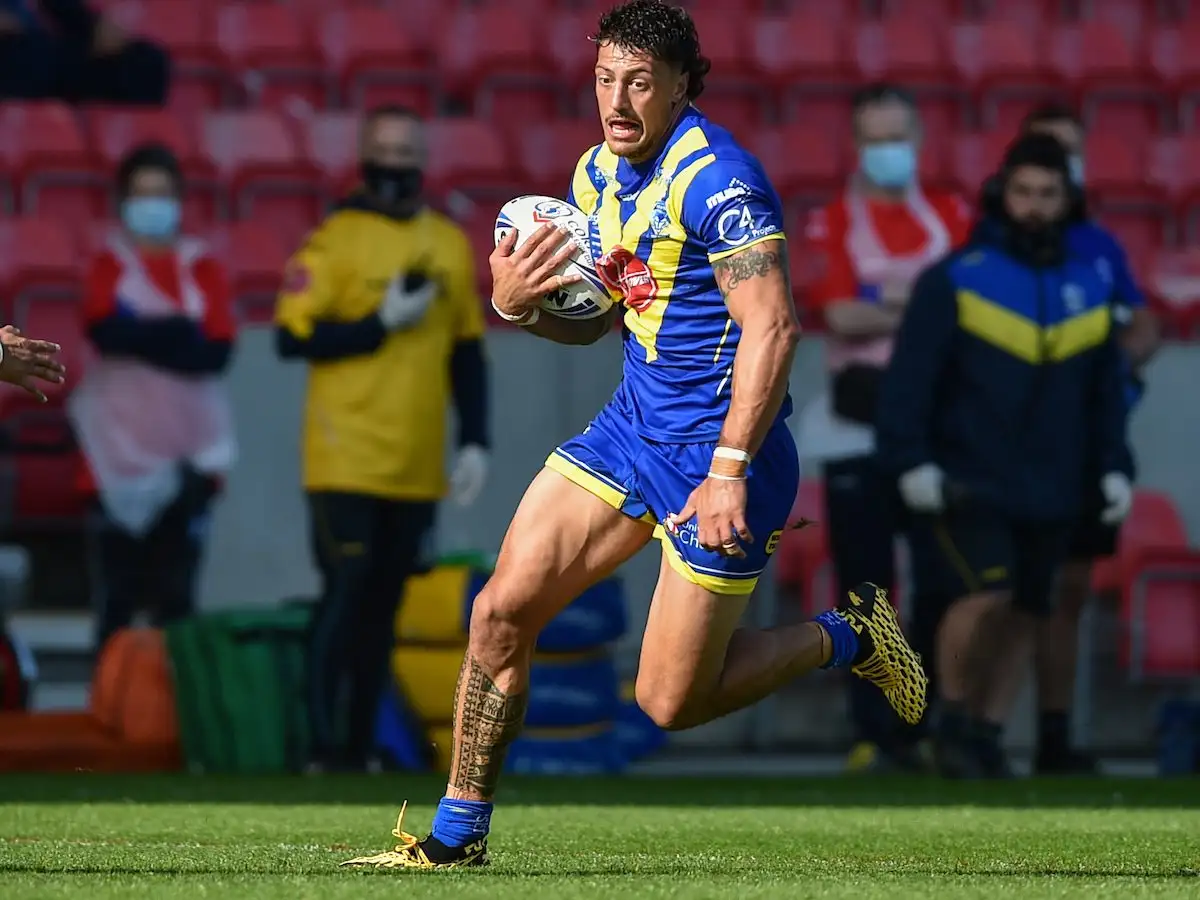Mailbox: Head says St Helens should be in Challenge Cup semi-finals

Anthony Gelling (3) of Warrington Wolves in action during the game
Mailbox gives you the chance to get your voice heard and start the debate with the rugby league audience. Want to be featured? Email the editor: james@loverugbyleague.com
Dear Sir or Madam,
A rule of rugby league states (source):
“KNOCK ON & FORWARD PASS…
Heading the ball 4. It is illegal to head the ball in a forward direction.”
In the Challenge Cup quarter-final game on Saturday, September 19th, 2020, a ‘try’ that was awarded to Warrington Wolves involved the ball moving forwards from the head of a Warrington Wolves player. The video referee stated that the ball had come off the player’s head. The game was televised by the BBC. Its commentators variously stated that the ball was “a header” and that the ball had “moved forward.” In a post-game interview, the interviewer commented on the player’s “heading” the ball. The player stated that it had been practised.
The strangest try that you'll see this year! 🤪
Anthony Gelling's head has got Warrington one step closer to the #ChallengeCup semi-finals!
📲 LIVE @BBCOne: https://t.co/YVzsgb990v #bbcrl pic.twitter.com/yhVtgw2q6V
— BBC Sport (@BBCSport) September 19, 2020
The BBC states (in their match report) that the scorer of the ‘try’ took advantage of a “unique headed ‘assist’. It can well be regarded as “unique,” for players do not head the ball in the sport of rugby league. as a rule. It is reasonable to assume that if players were of the opinion that a head’s moving a ball forwards was permissible, they would be likely to head the ball occasionally or even frequently, to add variety and unpredictability to their tactics. Association football is a sport in which, by principle, feet and heads (but not hands, except by goalkeepers) are used to propel the ball. Rugby evolved from association football. It differs from it essentially in that it is a sport in which hands and feet, but not heads, are used to propel the ball.
The game was a Challenge Cup quarter-final. in which this incident was particularly significant. The final score, including the four points awarded for the ‘try’, was Warrington Wolves 20 St. Helens 18. The score without the ‘try’ would and should be, at least, Warrington Wolves 16 St. Helens 18. Therefore, St. Helens should play in a Challenge Cup semi-final.
Yours faithfully,
John McCormick
Editor’s comment: Far be it from me to try and decipher the laws of the game, the bottom line is this game is in the books and nothing can be done to change it. The video above shows how the touch judge stopped once the header had occurred, though the referee did award the try on the field and it was given. There are a number of instances in the laws that would appear to be open to interpretation, especially around deliberate acts (such as when the ball hits a defender off an attacking kick, whether that’s deemed to be played at or not). Regardless of what Gelling said post-match, it’s extremely unlikely that this play was a deliberate one, and just a lucky or fortunate act that helped propel the Wolves to Wembley.
Mailbox gives you the chance to get your voice heard and start the debate with the rugby league audience. Want to be featured? Email the editor: james@loverugbyleague.com



